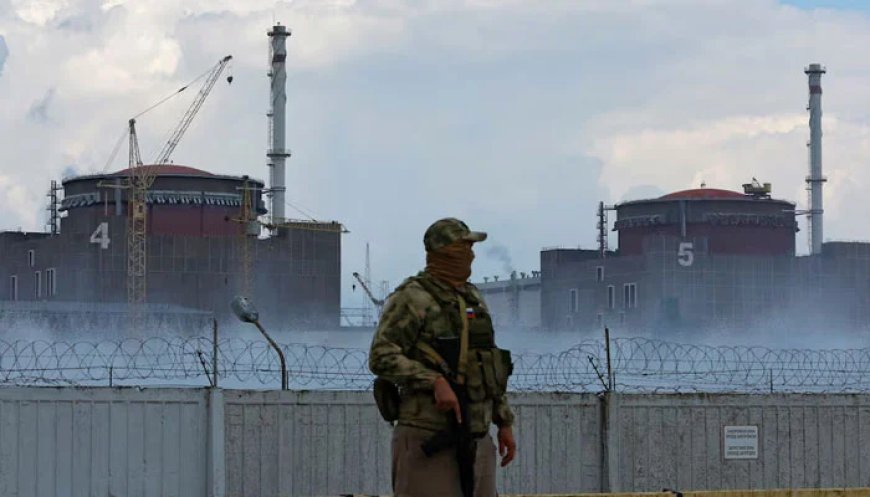Russia says Ukraine planning Kursk nuclear plant 'provocation'

1. Russia's defence ministry says there would be a harsh response to any attack on the Kursk power plant
Russia on Saturday accused Ukraine of plotting an attack on a nuclear plant in the Kursk region, which Ukrainian forces have recently entered, with plans to blame the "provocation" on Moscow, according to the Interfax news agency.
Kyiv dismissed the accusation as "insane" propaganda.
Ukraine launched an incursion into Russia's western Kursk region on August 6, aiming to shift the dynamics of the ongoing two-and-a-half-year war following Moscow's 2022 invasion.
Russia's defense ministry warned of severe consequences if the Kursk power plant, which remains under Russian control, were attacked, as reported by Interfax. While no evidence was provided to support the claim against Ukraine, Russian authorities said an attack could contaminate a large area surrounding the plant.
"We are witnessing yet another surge in Russia's insane propaganda about alleged Ukrainian plans to use 'dirty bombs' or target nuclear plants. We categorically reject these false claims," stated Ukrainian Foreign Ministry spokesperson Heorhii Tykhyi on X, formerly known as Twitter.
"Ukraine has neither the intention nor the capability to carry out such actions."
Rosatom, Russia's state nuclear corporation that also manages the Zaporizhzhia nuclear plant in Ukraine, echoed the accusations against Kyiv, according to the RIA news agency, but provided no supporting evidence.
Rosatom's head, Alexei Likhachev, discussed the situation with Rafael Grossi, the head of the International Atomic Energy Agency (IAEA), during a phone call and invited him to visit the Kursk plant, RIA reported.
Both Russia and Ukraine have repeatedly accused each other of attempting to sabotage operations at the Zaporizhzhia plant, Europe’s largest nuclear facility, located in southeastern Ukraine. Though the plant is currently shut down, it requires external power to maintain the cooling of nuclear material and prevent a potential meltdown.

















































